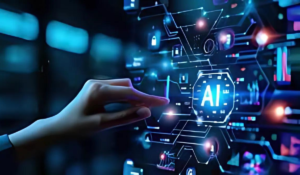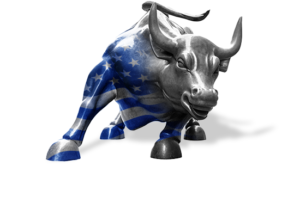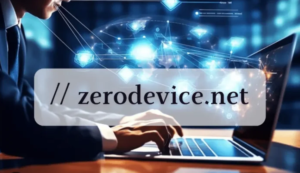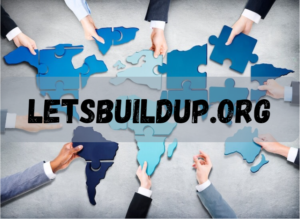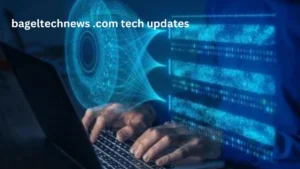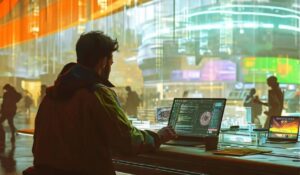Introduction
In the digital age, information is both a powerful tool and a potential threat. The rise of whistleblowers and the dissemination of sensitive information have become commonplace, creating a landscape where transparency and secrecy coexist in a delicate balance. One of the most recent and talked-about incidents in this realm is the Nnevelpappermann leaks. These leaks have sparked widespread controversy, debates on ethics, and discussions about the role of digital security in today’s world. This article delves into the Nnevelpappermann leaks, exploring their origins, implications, and the broader context within which they occurred.
The Origins of the Nnevelpappermann Leaks
Who is Nnevelpappermann?
Before delving into the specifics of the leaks, it’s essential to understand the central figure: Nnevelpappermann. Nnevelpappermann, whose real name remains undisclosed, is a pseudonymous whistleblower who gained notoriety for exposing sensitive information from various high-profile organizations. With a background in cybersecurity and a deep commitment to transparency, Nnevelpappermann’s leaks have targeted government agencies, multinational corporations, and financial institutions, among others.
The First Leak
The first significant leak attributed to Nnevelpappermann emerged in early 2023. It involved a series of internal documents from a major pharmaceutical company, revealing unethical practices in drug pricing and marketing strategies. The leak was released on multiple platforms, including social media and whistleblowing websites, garnering immediate attention from the media and the public. This initial leak set the stage for what would become a series of high-profile disclosures.
Major Leaks and Their Impact

Government Surveillance Programs
One of the most explosive revelations from Nnevelpappermann involved detailed documents outlining extensive government surveillance programs. These documents exposed the extent to which various governments were monitoring their citizens’ digital communications without proper oversight or transparency. The leaks fueled debates about privacy, civil liberties, and the balance between security and individual rights.
Public Reaction
The public reaction to the government surveillance leaks was polarized. Privacy advocates hailed Nnevelpappermann as a hero for exposing what they saw as overreach by the state. Conversely, government officials and security experts argued that the leaks jeopardized national security by revealing classified operations.
Corporate Malfeasance
In addition to government surveillance, Nnevelpappermann leaked documents from several multinational corporations. These documents uncovered unethical business practices, including tax evasion, environmental violations, and exploitative labor practices. Notable companies implicated in these leaks faced public backlash, legal challenges, and significant damage to their reputations.
Legal and Financial Repercussions
The corporate leaks had immediate and long-term consequences. Several companies faced lawsuits, regulatory fines, and increased scrutiny from watchdog organizations. Shareholders responded with concern, leading to fluctuations in stock prices and, in some cases, significant financial losses.
Financial Institutions
Another critical area targeted by Nnevelpappermann involved the financial sector. Leaks from major banks and investment firms revealed questionable practices in lending, investment strategies, and client relations. These disclosures highlighted issues such as predatory lending, conflicts of interest, and the manipulation of financial markets.
Regulatory Reforms
The financial leaks spurred calls for regulatory reforms. Legislators and financial regulators in multiple countries proposed stricter oversight measures to prevent similar malpractices in the future. While some of these reforms were implemented, debates about the effectiveness and scope of regulatory measures continue.
Ethical Considerations
The Role of Whistleblowers
The Nnevelpappermann leaks have reignited discussions about the role and ethics of whistleblowers in society. Whistleblowers play a crucial role in exposing wrongdoing and holding powerful entities accountable. However, the methods and consequences of their actions often spark ethical dilemmas.
Hero or Villain?
Public perception of whistleblowers like Nnevelpappermann is divided. Supporters view them as champions of transparency and accountability, willing to risk their safety to expose the truth. Critics, however, argue that their actions can be reckless, endangering lives and undermining institutions meant to protect society.
The Ethics of Leaking
The ethics of leaking sensitive information is a complex issue. On one hand, leaks can shed light on corruption, abuse, and injustice that would otherwise remain hidden. On the other hand, indiscriminate leaking can cause collateral damage, compromising privacy, security, and the functioning of legitimate institutions.
Balancing Act
Finding a balance between the need for transparency and the potential harm caused by leaks is challenging. Ethical guidelines for whistleblowers and media organizations handling leaked information are essential to navigate this delicate terrain. These guidelines should aim to protect the public interest while minimizing unnecessary harm.
Digital Security and Privacy
The Vulnerability of Information
The Nnevelpappermann leaks underscore the vulnerability of information in the digital age. Despite advancements in cybersecurity, no system is entirely impervious to breaches. The leaks serve as a reminder of the need for robust security measures to protect sensitive data from unauthorized access.
Cybersecurity Measures
Organizations must invest in comprehensive cybersecurity strategies, including encryption, regular security audits, and employee training on best practices. Additionally, governments and regulatory bodies need to establish and enforce standards for data protection to mitigate the risks of leaks and breaches.
Personal Privacy
The leaks also highlight the broader issue of personal privacy in the digital era. With vast amounts of personal data stored online, individuals are increasingly at risk of having their privacy compromised. The Nnevelpappermann leaks revealed how easily personal information could be accessed and exploited, raising concerns about data privacy practices.
Data Protection Laws
In response to growing privacy concerns, many countries have enacted data protection laws, such as the General Data Protection Regulation (GDPR) in the European Union. These laws aim to give individuals greater control over their personal data and impose strict obligations on organizations handling such data. However, the effectiveness of these laws in preventing data breaches remains a topic of ongoing debate.
The Future of Whistleblowing
Evolving Tactics
As digital security measures evolve, so too do the tactics of whistleblowers. Future whistleblowers may adopt more sophisticated methods to avoid detection and protect their identities. The use of decentralized platforms and encrypted communication channels is likely to increase, making it more challenging for authorities to track and prevent leaks.
Legal and Regulatory Responses
Governments and organizations are likely to continue tightening laws and regulations related to whistleblowing and information security. Balancing the protection of whistleblowers with the need to safeguard sensitive information will remain a contentious issue. Legal frameworks must adapt to address the complexities of modern whistleblowing while ensuring accountability and transparency.
Public Perception
Public perception of whistleblowers and leaks will continue to shape the landscape of whistleblowing. Increased awareness of the role of whistleblowers in exposing wrongdoing may lead to greater support and protection for these individuals. However, the potential for misuse and the ethical dilemmas associated with leaking sensitive information will persist.
Conclusion
The Nnevelpappermann leaks have brought to the forefront critical issues regarding transparency, ethics, digital security, and privacy in the modern world. While these leaks have exposed significant wrongdoing and prompted calls for reform, they have also highlighted the complex and often contentious nature of whistleblowing. As we move forward, it is essential to navigate the delicate balance between transparency and security, ensuring that whistleblowers can continue to play their vital role in holding powerful entities accountable while minimizing potential harm. The Nnevelpappermann leaks serve as a powerful reminder of the need for robust ethical guidelines, legal protections, and cybersecurity measures in our increasingly digital society.





